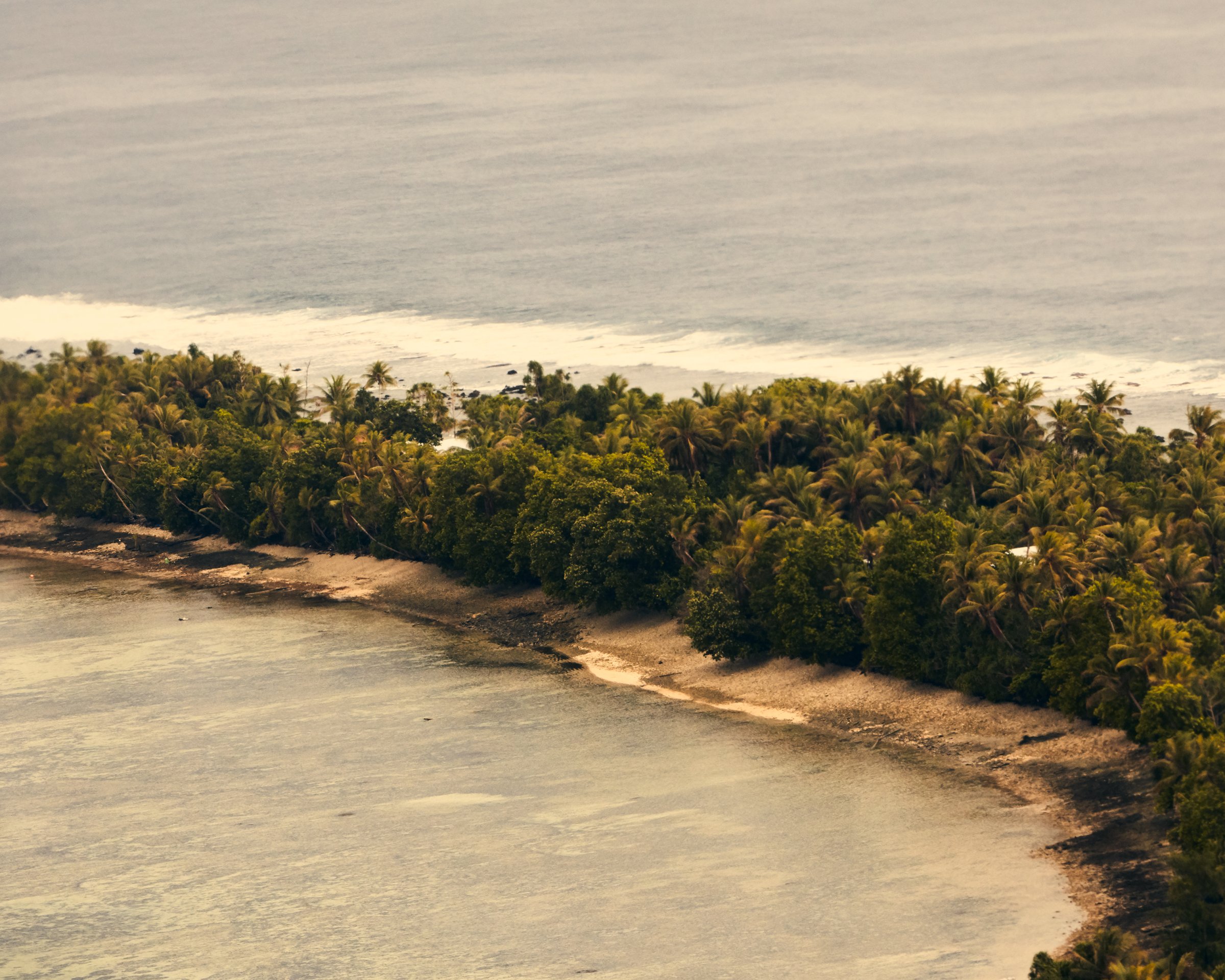
The journey to the Fijian village of Vunidogoloa is arduous. It requires a flight across the Pacific to the nation’s remote international transit hub, a 140-mile connection on a rickety 19-seat plane to a smaller island, an hourlong drive past other rural villages and finally a short walk guided by a man with a machete to reach a ghost town forced into retreat by climate change and the rising seas that come with it.
Once home to more than 100 people, Vunidogoloa has been overrun by the tropical forest. Plants cover the town square. The stench of rotting rodents wafts from abandoned homes, and salt water seeps up through the soil as far as 300 ft. from Natewa Bay. This Saturday morning in mid-May is warm and pleasant, but a few times a year, king tides inundate the village with knee-high waters; locals were forced to place precious possessions on tall surfaces and run for the hills. “All the rights of living,” says Sailosi Ramatu, the village’s administrator, “had been lost because of climate change.”
More Must-Reads from TIME
- Donald Trump Is TIME's 2024 Person of the Year
- Why We Chose Trump as Person of the Year
- Is Intermittent Fasting Good or Bad for You?
- The 100 Must-Read Books of 2024
- The 20 Best Christmas TV Episodes
- Column: If Optimism Feels Ridiculous Now, Try Hope
- The Future of Climate Action Is Trade Policy
- Merle Bombardieri Is Helping People Make the Baby Decision
Contact us at letters@time.com